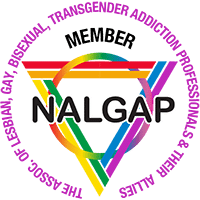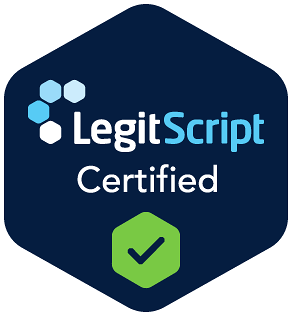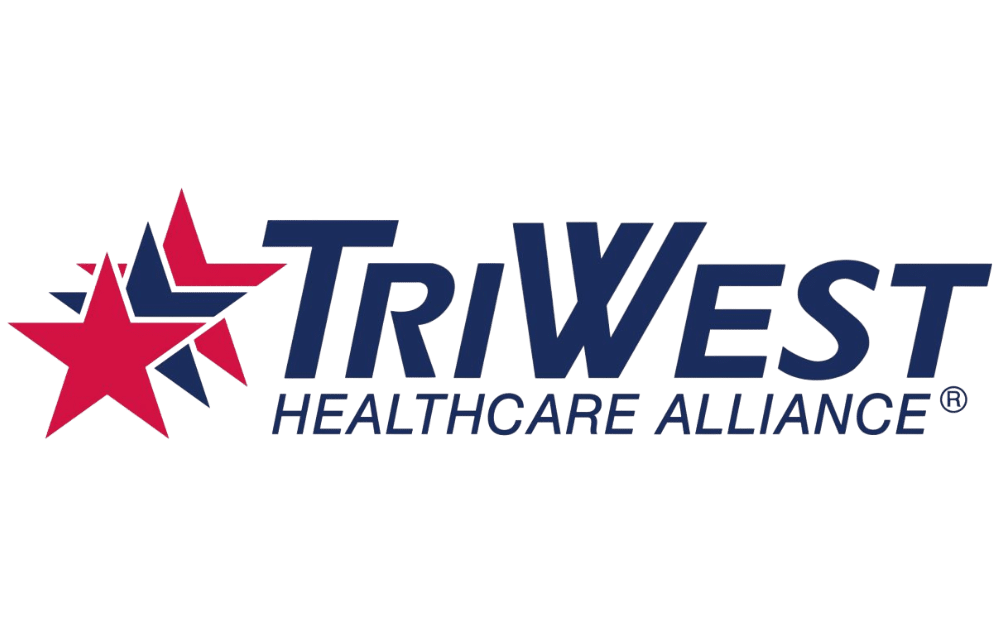Substance abuse treatment denver co
Substance Abuse Treatment Overview
In the heart of Denver, substance abuse treatment offers a myriad of services tailored to help individuals reclaim their lives from the grips of addiction. With a focus on holistic and evidence-based approaches, treatment centers in the area aim to address both the physical and psychological aspects of substance use disorders.
The availability of comprehensive care enables patients to access a range of services from detoxification to aftercare support, ensuring a continuum of care that is crucial for long-term recovery. This integrated approach is particularly important in a city like Denver, where the demand for effective substance abuse treatment continues to rise.
Types of Treatment
Residential Treatment
Residential treatment provides a structured environment where patients live on-site while receiving intensive therapy. This setting is ideal for individuals with severe addiction issues or those who require a stable environment to focus solely on their recovery. In Denver, residential treatment programs often incorporate both individual and group therapy, offering a supportive community to aid in the healing process.
Outpatient Programs
Outpatient programs provide flexibility for those who need treatment while maintaining their daily responsibilities. These programs allow individuals to live at home and attend therapy sessions, making it a viable option for those with mild to moderate substance use disorders. The Mile High Recovery Center, for example, offers extensive outpatient services, allowing patients to engage with treatment without pausing their everyday lives.
Medication-Assisted Treatment
Medication-Assisted Treatment (MAT) combines behavioral therapies and medications to treat substance use disorders effectively. In Denver, MAT is particularly beneficial for those struggling with opioid addiction, utilizing medications like Suboxone and Vivitrol to manage withdrawal symptoms and reduce cravings.
Integrated Treatment Approach
In Denver’s substance abuse treatment landscape, an integrated approach is vital. This method combines various therapeutic modalities to provide a comprehensive treatment plan. At Mile High Recovery Center, the integration of Cognitive Behavioral Therapy, Dialectical Behavior Therapy, and experiential therapies such as art and music therapy exemplifies this holistic approach.
By addressing not only the addiction but also underlying mental health conditions, integrated treatment ensures that individuals receive a multifaceted care plan tailored to their unique needs. This approach is particularly beneficial for patients with co-occurring disorders, as it treats all aspects of their health simultaneously.
Unique Therapeutic Modalities
Adventure Therapy
Adventure therapy is a growing trend in Denver that combines physical activity with psychotherapy. This treatment modality is particularly effective for individuals seeking alternative ways to process their emotions and build resilience. By engaging in activities such as hiking or rock climbing, patients develop a stronger sense of self and a renewed commitment to their recovery journey.
Equine-Assisted Therapy
Equine-assisted therapy uses horses to facilitate emotional growth and learning. In Denver, this therapy is gaining popularity for its ability to help individuals build trust, improve self-esteem, and develop emotional regulation skills, all crucial components in overcoming substance abuse.
Supportive Housing Options
For many recovering individuals, supportive housing offers a critical bridge from treatment to independent living. In Denver, sober living homes provide a structured environment where individuals can continue their recovery journey surrounded by a supportive community. At Mile High Recovery Center, residents benefit from a housing-to-treatment pipeline that ensures continuity of care and fosters long-term recovery success.
This supportive housing option is particularly beneficial for those who have completed a residential program and need additional time to reinforce the skills and strategies learned during treatment before reintegrating into society fully.
Importance of Dual Diagnosis Treatment
Dual diagnosis treatment addresses the intersection of substance use disorders and co-occurring mental health issues, such as anxiety or PTSD. In Denver, the availability of dual diagnosis treatment is crucial, as many individuals struggling with addiction also face mental health challenges.
By treating both conditions simultaneously, treatment centers can offer a more comprehensive care plan that addresses all facets of an individual’s health, leading to improved outcomes and sustained recovery. This approach recognizes the complex nature of addiction and the need for an all-encompassing strategy to promote healing and wellness.
Role of Family in Treatment
The involvement of family members in the treatment process can significantly enhance recovery outcomes. In Denver, many treatment centers encourage family participation through therapy sessions and educational workshops. These programs aim to educate families about addiction, build communication skills, and offer strategies to support their loved ones effectively.
By fostering a supportive family environment, individuals in recovery can rely on a stable network of loved ones who understand the challenges of addiction and are committed to supporting their journey to sobriety. This network is an invaluable component of sustained recovery.
- Family Therapy Sessions: Sessions that focus on improving communication and addressing family dynamics that may contribute to addiction.
- Educational Workshops: Programs designed to educate families about the nature of addiction and recovery, providing practical tools to support their loved ones.
Challenges of Substance Abuse Treatment
While Denver offers a robust network of substance abuse treatment options, challenges remain. Access to care can be hindered by factors such as cost, insurance limitations, and social stigmas associated with addiction. Additionally, individuals may face personal barriers such as denial or lack of motivation to engage fully with treatment programs.
Addressing these challenges requires a collaborative effort from the community, healthcare providers, and policymakers to ensure that all individuals in Denver have access to the resources they need to overcome addiction and lead fulfilling lives.
Community Support and Alumni Involvement
A strong sense of community is essential for sustaining long-term recovery. In Denver, treatment centers like Mile High Recovery Center emphasize alumni involvement and peer support. Alumni groups offer a platform for individuals to share experiences, celebrate milestones, and provide encouragement to those just beginning their recovery journey.
The active engagement of alumni not only reinforces their own recovery but also inspires and supports new patients, creating a cycle of mentorship and growth within the recovery community. This approach fosters a sense of belonging and purpose, which are vital for maintaining sobriety.
By leveraging the strength of community and alumni networks, Denver’s substance abuse treatment centers create an environment where recovery is celebrated and sustained through mutual support and shared experiences.
What makes Mile High Recovery Center’s approach to substance abuse treatment unique in Denver?
Mile High Recovery Center offers a comprehensive and integrated approach to substance abuse treatment that emphasizes personalized care and community connection. What sets the facility apart is its ability to provide a continuum of care from residential treatment to outpatient options, alongside supportive housing. This ensures that individuals receive the necessary support at every stage of their recovery journey. Additionally, the center’s use of evidence-based approaches, such as Cognitive Behavioral Therapy and Dialectical Behavior Therapy, combined with experiential modalities like adventure and equine-assisted therapy, allows for a holistic treatment experience. Furthermore, the involvement of an active alumni community enhances long-term recovery by fostering a supportive network. Such a multifaceted approach not only addresses addiction but also supports mental health and personal growth.
How do residential and outpatient treatment programs differ at Mile High Recovery Center?
Residential treatment at Mile High Recovery Center provides individuals with a structured and immersive environment, allowing them to focus solely on recovery away from external stressors. This program is beneficial for those with severe addictions or co-occurring mental health conditions, as it offers 24/7 care and support. An anecdote often shared is of a former resident who found the stable, nurturing environment pivotal in rebuilding their life, drawing strength from the community within the center.
Conversely, outpatient programs offer flexibility for those who need to integrate treatment into their daily lives without pausing their personal or professional commitments. These programs are ideal for individuals with mild to moderate addiction issues. They provide the opportunity to apply coping strategies in real-world scenarios, which can be invaluable in reinforcing recovery skills. The center’s outpatient services, which include partial hospitalization and intensive outpatient programs, are tailored to accommodate individual needs, allowing patients to transition back into society at their own pace.
Why is an integrated treatment approach crucial for effective recovery?
An integrated treatment approach is essential because it addresses the complexities of addiction holistically. Mile High Recovery Center exemplifies this by combining medical management with comprehensive therapy, catering to both the addiction and any underlying mental health disorders simultaneously. Imagine someone battling addiction while also dealing with anxiety or PTSD; treating these conditions together ensures that all aspects of an individual’s wellbeing are addressed, leading to better long-term outcomes.
Studies have shown that integrated approaches lead to higher success rates in recovery, as they provide patients with the tools to manage both their addiction and mental health, preventing relapses triggered by untreated psychological conditions. This comprehensive care model fosters resilience and equips individuals with the skills for sustained sobriety.
How do adventure and equine-assisted therapies enhance the treatment experience at Mile High Recovery Center?
Adventure and equine-assisted therapies provide alternative pathways to healing that can be particularly effective for individuals seeking to explore emotions and coping mechanisms beyond traditional talk therapy. At Mile High Recovery Center, adventure therapy might involve activities such as rock climbing, which build confidence and resilience by pushing personal limits and fostering a sense of accomplishment. This experiential learning promotes self-discovery and can rekindle a patient’s enthusiasm for life.
Equine-assisted therapy, on the other hand, leverages the bond between humans and horses to teach empathy, trust, and emotional regulation. Working with horses requires patience and communication, skills that translate well to personal relationships and self-management. Clients often report profound emotional breakthroughs during these sessions, which can significantly enhance their overall treatment process.
What role does supportive housing play in the recovery process at Mile High Recovery Center?
Supportive housing is a pivotal component of the recovery process, providing a stable and secure living environment where individuals can focus on applying recovery skills in a real-world setting. At Mile High Recovery Center, the housing-to-treatment pipeline ensures individuals can transition smoothly from an intensive treatment setting to greater independence, while still being supported by a network of peers and professionals.
This setup is particularly beneficial for those who have completed residential programs and need time to reintegrate into society gradually. It reduces the risk of relapse by maintaining a structured daily routine and a supportive community, which are crucial for individuals as they navigate the complexities of early recovery.
Why is dual diagnosis treatment important for individuals with co-occurring disorders?
Dual diagnosis treatment is critical because it addresses both substance use disorders and any accompanying mental health issues simultaneously. Often, substance abuse is a way for individuals to self-medicate underlying mental health conditions like depression or anxiety. By providing comprehensive treatment for both, Mile High Recovery Center helps individuals tackle the root causes of their addiction, leading to more sustainable recovery outcomes.
For instance, someone struggling with PTSD might find that their substance use diminishes as their trauma is addressed through therapy. The center’s dual diagnosis capability ensures that patients receive a care plan tailored to their unique set of circumstances, increasing the likelihood of long-term sobriety.
How does family involvement enhance the recovery process at Mile High Recovery Center?
Family involvement is a significant factor in the success of an individual’s recovery. Mile High Recovery Center actively includes family members in the treatment process through therapy sessions and educational workshops, recognizing that a supportive home environment can dramatically enhance recovery outcomes. Through family therapy, communication improves, and family dynamics contributing to addiction can be addressed and transformed.
A personal anecdote from a Mile High counselor highlights a family that became pivotal to their daughter’s recovery by learning communication strategies and attending workshops. They not only became her biggest cheerleaders but also developed a deeper understanding of addiction, fostering a more compassionate and supportive home life.
Resources
- Substance Abuse and Mental Health Services Administration – The Substance Abuse and Mental Health Services Administration (SAMHSA) is a government organization dedicated to reducing the impact of substance abuse and mental illness on America’s communities.
- National Institute on Drug Abuse – The National Institute on Drug Abuse (NIDA) is a government organization that conducts research on drug use and addiction to improve individual and public health.
- American Psychiatric Association – The American Psychiatric Association (APA) is a professional organization representing psychiatrists in the United States, working to ensure humane care and effective treatment for all individuals with mental illness.
- National Institute of Mental Health – The National Institute of Mental Health (NIMH) is a government organization dedicated to research on mental disorders to understand, treat, and prevent mental illness.
- Centers for Disease Control and Prevention – The Centers for Disease Control and Prevention (CDC) is a government organization focused on protecting public health and safety through the control and prevention of disease, injury, and disability.
















